#polyhymnia deity
Explore tagged Tumblr posts
Text
Greek Gods 101: Polymnia
Polymnia is a Mousai of sacred/religious hymns and poetry, dance, eloquence, agriculture, and pantomime. Excluding the universal offerings, some common offerings include:
Written Prayers
Barley, Grain, Etc.
Persuasive Essays, Writings, Etc.
Poetry (Especially Religious Poetry)
Theatrical Masks
Depictions of Lyres (Or Actual Lyres)
Meditation Tools (e.g. Soundbaths)
Geometry Tools (e.g. Protractors)
For devotional acts, some activities that can be done for her include:
Writing Poetry or Hymns to Her or Other Deities
Learning How to Dance
Dancing in General (Even if You’re Bad at It)
Meditating
Watching Pantomimes
Writing Petitions to Deities
Writing/Speaking Prayers
Learning the Structures of Prayers and Hymns
Learning About Sacred Dance
She is not celebrated in any Athenian holidays.
#Polymnia#Polymnia deity#polymnia goddess#polymnia muse#polymnia Mousai#polyhymnia deity#polyhymnia goddess#polyhymnia muse#polyhymnia mousai#deities#hellenism#helpol#hellenic#hellenic pagan#hellenic polytheism#hellenic polytheist#hellenic community#hellenic deities
56 notes
·
View notes
Text

Apollo with his nine muses 🌿
#my art#apollo#greek mythology#greek gods#the nine muses#clio#calliope#urania#thalia#erato#melpomene#polyhymnia#terpsichore#euterpe#apollo deity#tagamemnon
778 notes
·
View notes
Text
My Hymn to the Muses
Since I can apparently write poetry now, I've decided to begin work on a hymnal. It's going to be a long-term project. As is proper, I've begun with the Muses. (I also really could use their help right now.) I was sobbing while writing this, so, that's how I know I'm on the right track.
To the Muses O Muses, from whom all stories flow Like the waters of the Hippocrene, that pours from Helicon’s towering heights onto the sacred planes of Greece; Daughters of Zeus and mothers of song, whose voices sound like chiming bells, heard in the ripples of the stream and the calling of the wind, singing stories older than the many languages of men; Your voices sing within my soul And always have, since I was born.
Urania, who in my youth led me to a sacred stream, and turned my face up to the stars; Calliope, who leads me through the lengthy stories that I tell; Terpsichore, who compels my limbs to express what’s in my heart; Euterpe and Erato, who with their sweet voices, charm my soul; Polyhymnia, who speaks to me now, encouraging me to praise the gods; Clio, she who calls my glance back to the rich lore of the past; Thalia and Melpomene, the witty players on life’s stage, who remind me to enjoy the show, and teach me how to cope with endings.
Pegasus brought me to you, Once, very long ago. And in that time you’ve taught me well How to sing and dance and write, the many arts of lorekeeping. Sisters, now I call to you-- fill me with the voice divine, so that always, always the words will come.
#poetry#my poetry#hymns#hymn to the muses#the muses#the nine muses#mousai#hellenic polytheism#hellenic pagan#helpol#hellenic paganism#hellenic devotion#greek gods and goddesses#hellenism#hellenic worship#hellenic deities#hellenic polythiest#calliope#urania#polyhymnia#euterpe#erato#terpsichore#clio#thalia#melpomene
58 notes
·
View notes
Text
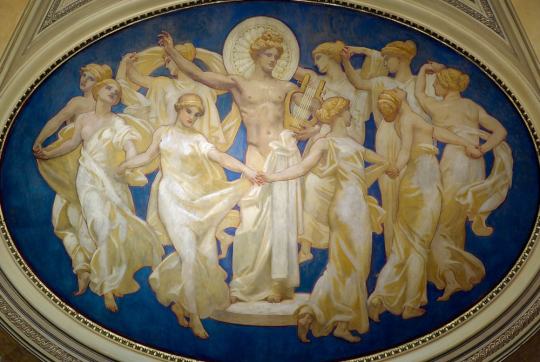
Apollo and the Muses (John Singer Sargent)
#apollo#apollon#the muses#muses#calliope#clio#euterpe#thalia#melpomene#terpsichore#erato#urania#polyhymnia#apollo deity#apollo devotee#apollon deity#apollon devotee#hellenic pantheon#hellenic polytheism#hellenic gods#hellenic community#hellenic pagan#hellenic paganism#hellenic polytheist#hellenic worship#apollo devotion#apollo and the muses#opinion#opinion poll#poll
126 notes
·
View notes
Text
#7242
Polyhymnia, praising every greatness with many hymns, Spread words far and wide of how the heavenly deity Has brightened our eyes before obscurity bedims To make us blaspheme out of ingratitude in his sovereignty.
#my poem#poem#poetry#polyhymnia#sovereignty#deity#word#eye#hymn#ingratitude#obscurity#greatness#7242
3 notes
·
View notes
Text
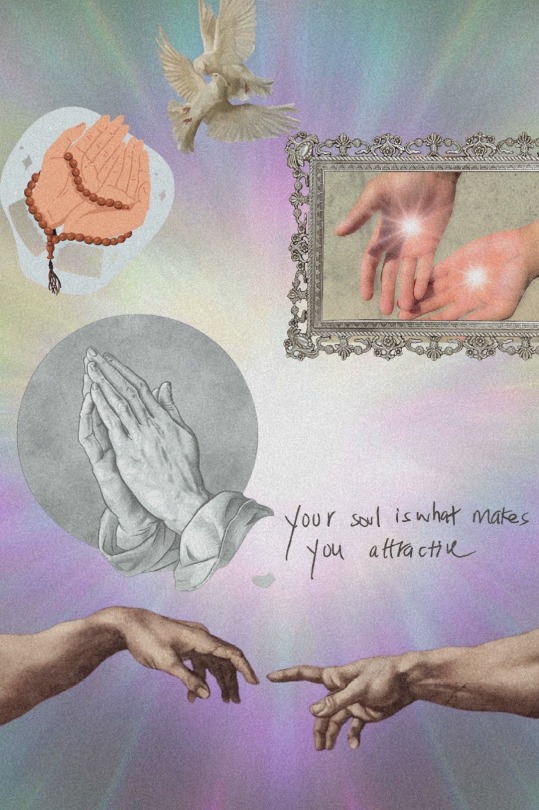
This collage is dedicated to Polyhymnia the muse of sacred poetry
I’m not fully sure as to why I was drawn to so much hand imagery, but I’m open to hearing why you think that might be!
3 notes
·
View notes
Text
Round 1: Poll 9
*Please Read*
I advise everyone to read each contestant's story to get a well-rounded understanding of each entry. I urge you to not just vote for the one "you know best". I have everyone's stories/reasons why they should win under the cut.
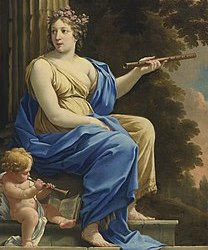

Propaganda:
Euterpe
What's The Love Story?
She's the Muse of music and lyric poetry!!! Meaning she and Apollo probably rock out a lot more together!
Why Should They Win?
MUSIC BUDDIES!!!
Polyhymnia
What's The Love Story?
Muse of sacred poetry <3 I headcanon her to be rather flirty.
Why Should They Win?
Polyhymnia is also rather meditative and I think she and Apollo have a lot of serious introspection about a variety of things.
#underrated lovers poll#round 1#tagamemnon#euterpe#polyhymnia#greek mythology#the trials of apollo#apollo#apollo deity#pjo apollo#trials of apollo
5 notes
·
View notes
Note
You, I made this post, somewhere, anyway, what are 10 minor deities u know of. This is just for fun 😎
Khaire!
Your wording at the start kind of confuses me, sorry. ^^; But I'll gladly talk about some minor deities I know of!
Triton, a god of the Sea, is one that I was paid to make a subtle worship post on and will be doing one for soon here. Galatea, goddess of calm seas, is another I paid to make a post about! Hippocrates, the god of Silence, was one I hadn't heard of before someone requested I make a post about him; his history is pretty interesting! There's also Thanatos, god of Peaceful Death, who is often confused with and overshadowed by Haides, interestingly. Asclepius, god of Medicine, is a son of Apollo who was actually deified after being killed for discovering a way for humans to not die (seems the gods aren't big on immortality for humans in the myths, and I don't blame them XD). Nyx, goddess of the Night, is pretty lesser known as well but is said to be one of the most powerful goddesses within the myths - someone who even Zeus himself feared the power of. Tyche, goddess of Fortune, is another deity who gets often overlooked but is known to control both good and bad fortune, among many other things. Harmonia, goddess of Harmony, is a daughter of Ares and Aphrodite, actually, who was transformed into a snake along with her lover. Morpheus, the leader of the Oneiroi and God of dreams, is a pretty interesting figure who is a son of Hypnos. And last, but not least, is Iris, messenger of Hera and goddess of Rainbows, who is very often overlooked in modern worship circles, unfortunately.
An honorable mention goes to all of The Muses, who are lesser known than they should be, for sure. Clio (Muse of History), Calliope (Muse of Epic Poetry & Eloquence), Melpomene (Muse of Tragedy), Thalia (Muse of Comedy), Erato (Muse of Erotic Poetry), Polyhymnia (Muse of Religious Hymns), Ourania (Muse of Astronomy), Euterpe (Muse of Lyric Poetry), and Terpsikhore (Muse of Choral Song and Dancing).
Hope this gives you a good answer! Take care! 🧡
37 notes
·
View notes
Note
Professor Reames, happy 2025!
From a sexual or feminine perspective, would it be licit to draw parallels between the muses of Antiquity and what we call today the manic pixie dream girl trope?
The Muses
First, a confession. I had to look up manic pixie dream girl. But I understood it instantly and LOVE that term and will use it henceforth!
But for the Muses…no.
The Muses fit in with Greek “concept” deities, such as Justice (Themis), Discord (Eris), Phoibos (Fear), and Hypnos (Sleep). These gods usually have little personality and are mostly not present in myth (Eris's famous walk-on with her apple aside).
Anyway, the muses were seen as both embodying the “spirit” of something as well as inspiring creators of that thing. But they weren’t love interests of the creators, or eclipsed by them, or the object/creation. The myth of Galatea and Pigmalion MUCH better encapsulates the manic pixie dream girl vibe. You might say Galatea is the original manic pixie dream girl! A literal statue who was brought to life for her sculptor (Pygmalion) by Aphrodite, because he desired her so. Although I don't suppose we can call a statue "quirky," and she does get something back (life itself).
But Galatea is much, much closer to a manic pixie dream girl.
Here are the nine Muses (all daughters of Apollo), and their areas. History and astronomy have muses, but not sculpture. In fact, NONE of the visual arts have a muse. Interesting, no? The closest you might get is Hephaistos, god of crafts, and he's no muse.
Klio/Clio: History
Urania: astronomy and navigation
Euterpe: Music
Polyhymnia: sacred music/hymns
Terpsichore: dance and choral music
Kalliope/Calliope: epic poetry and eloquence generally
Erato: love and lyric poetries
Thalia: comedy and pastoral poetry
Melpomene: tragedy
BUT, once upon a time, there were only three: Mneme (memory), Melete (practice), Aoide (melody)
#Greek gods#Greek religion#The Muses#manic pixie dream girl#Galatia and Pygmalion#asks#Greek concept gods#ancient Greece#Greek myth
10 notes
·
View notes
Text
The Mousai
After doing a lot of research, divining, and asking questions to everyone, I finally felt ready enough to reach forward to the Mousai!

Z20.2 PORTRAITS OF THE NINE MUSES The nine circles of this mosaic contain portraits of the nine Muses. The goddesses and their attributes from the top left to the bottom right are Calliope with a scroll, Euterpe with a flute, Thalia with a comic mask, Melpomene with a tragic mask, Terpsichore with a lyre, Erato with a cithara, Clio with a writing block, Urania with a globe, and Polyhymnia without an attribute.
I was definitely afraid that this was blaspheming God with this doing this. That this was the final nail in the coffin. I was agonizing forever on this one, even with reassurance from Lady Sophia and Our Holy Mother.
It wasn't until I cried out for a sign in my room that Big J himself said in my ear that no matter what he'd still love me. I actually cried then, scrunching up my covers and sobbing. My tears seemed to wash away my worries- or rather his words did. I told you all before how much of a Big Brother Lord Jesus is, but I never cried like that before him and felt his arms just circle me in an embrace like that.
It was such an amazing feeling! Which is why I'm feeling a lot more confident to put this down!
Now onto the Mousai below the cut!
The Mousai, more readily known as the Muses are the goddesses of music, poetry and inspiration in Hellenism. Led by Calliope, their role was expanded to encompass a variety of arts including rhetoric, philosophy, mathematics, geography, history and astronomy. They were also goddesses of knowledge, who remembered all things that had come to pass as daughters of Mnemosyne, who is the Titan Goddess of Memory and creator of language.
Numbered among them are:
Calliope: Goddess of Epic poetry and eloquence. The mother of the poet Orpheus and the leader of the Mousai. Her name means "Beautiful voiced" from the Greek words kallos and ops.
Clio: Goddess of History. Her name means "To make famous" or "celebrate." from the Greek verb kleô. As a history nerd, I thank her greatly.
Erato: Goddess of erotic poetry. Her name means "lovely" or "beloved" from the Greek word eratos.
Euterpe: Goddess of Lyric poetry. Her name was derived from the Greek words eu- and terpô, meaning "giver of much delight." She might explain where I get all my sudden bursts of inspiration for song lyrics throughout the day!
Polyhymnia: Goddess of Hymns. Her name was derived from the Greek words poly- "many" and hymnos "praise" or "hymn." Invoking her with my hymns and prayers helps me a lot! Same thing with making devotional playlists!
Urania: The Goddess of astronomy and astrology... and mathematics. Definitely mathematics! Praying to her and Lady Sophia for discernment has helped my Pre-Calc grade more than anything else! Her name means: ”Heavenly" or "of heaven".
Thalia: Goddess of Comedy. Her name was derived from the Greek word thaleia meaning "rich festivity" or "blooming." I see myself as a (hopefully) funny person so, I can thank her and My Heavenly Mother for that!
Melpomene: Goddess of Tragedy. Her name was derived from the Greek verb melpô or melpomai meaning "to celebrate with dance and song." She's also the mother of the Sirens! Definitely have been getting inspired by her with my track record for putting my darling ocs through the wringer. Suffering builds character I'm afraid.
Terpsichore: The Goddess of choral song and dance. Her name means "Delighting in Dance" from the Greek words terpsis "to delight" and khoros "dance". While I haven't sung in a choir in a while, I still appreciate how so many people coming together for a common goal can sound heavenly.
If I could describe what I think these Inspirers of Poetic Thought are in a few simple words, I would say that they are, like My Holy Mother and Lady Sophia and Jesus and the Archangels, are Emanations of a large deity- God, that is everything, everywhere all at once. They mix and intersect into each other's domains sometimes while still being their own individuals, but all come from the same source above all. The one that created and is the universe and all living things. The one who slumbers as creation. Our Heaven Father. Khaos. God. It's all the same at the end of the day to me at least. Divine offshoots created from a single unifying source.
I'll send more stuff in the future and try to update more often so don't be spooked if I pop up from time to time! Promise!
#christopagan#the muses#mousai#hellenic polytheism#Lady Sophia#jesus#Big Bro to the rescue#I love my brother#Lord Christ he's amazing#I hope I didn't ramble too much#or disrespect anybody#jeez#I need to work on my confidence
8 notes
·
View notes
Text
MiracOlympus- Recess Deities
Here they aaaare! The last round of deities! The Recess class! @artzychic27 @imsparky2002
Austin T:
(Eirene)
God of peace and harmony
Can diffuse a conflict just by walking in the room
Leads de-stressing activities on Olympus
He and Kagami have a love-hate kind of friendship
Only person who can get Jean to rest when they’re in “show mode”
Austin B:
(Mnemosyne)
God of memory and recollection
Remembers everything from the moment he was born
Will gladly remind you of a time you screwed up if you’re getting a big head
Integral part of the gossip squad
Austin Q :
(Tethys)
God of rivers and freshwater
Prefers to spend most of his time in the water
Gets pissed if mortals dump trash in the river
Helps Ondine keep Kim from doing crazy shit
One of the snarkiest gods
Austin A:
(Aglaea)
God of splendor and finery
His style is always ON POINT
Never seen anywhere without bling
Will tell you if something looks bad on you
King of makeovers
DJ:
(Tyche)
Deity of luck and good fortune
Has never lost a game, ever
LOVES making bets and wagers, and never loses
Four leaf clovers where she walks
Still a huge prankster
Oh yeah, he's blind
Victoria:
(Ananke)
Deity of destiny and inevitability
If they want something to happen, it will
Seems to see five steps ahead
“I told you so” is a bit of a catchphrase
Still super athletic
Gerard:
(Coeus)
God of knowledge and intellect
Can name facts about any subject off the top of his head
Always carrying at least eight books
Tends to ramble a bit when he’s interested in a topic
Brainy squad with Max and Anais
Gia:
(Alke)
Goddess of the battlefield and courage
Never backs down from a fight
Has a powerful war cry that can ignite fighting spirit in anyone
Blesses soldiers who die honorably
Besties with Kagami, they spar all the time
Mindy:
(Polyhymnia)
Muse of hymns and choral song
Voice powerful enough to stop hearts
Surprisingly shy, but commands attention when performing
Loves listening to and writing stories about heroes
Peacekeeper among her siblings
Spinelli:
(Terpsichore)
Muse of dance
Toughest and most graceful muse at the same time
Can dance flawlessly in any style
Can teach ANYONE to dance
Will deck you if you mess with any of his siblings
Mason:
(Daskalos)
Deity of education
Official tutor of Olympus, with help from the brain squad
Takes maintaining schools on Earth VERY seriously
Believes everyone deserves to learn
Still meticulous about everything
Kendra:
(Notus)
Goddess of the South wind and the rains
Snarkiest of all the winds, and very blunt
Usually has a small rain cloud
Can kick up a downpour when pissed
Likes to float upside down, and has wings like an albatross
Lotta:
(Hebe)
Goddess of youth and youthful spirit
Has so much energy, it’s ridiculous
Always looking for something new to try
VERY protective of children
Makes and serves the nectar on Olympus
Rochelle:
(Pheme)
Deity of rumor and infamy
Knows everything, about everyone, everywhere
Kind of impossible to keep a secret from zir
But surprisingly good at keeping them
Commander of the gossip squad
Leave your thoughts in the comments and reblogs!
20 notes
·
View notes
Text
last batch that i made today. feel free to use with credit.
i'm open to making these under request, just send me an ask with the deity you'd like a box for!! please be nice, too.
goddesses in this post: The Muses, Calliope, Clio, Erato, Euterpe, Melpomene, Polyhymnia, Thalia, Terpsichore, Urania.










#helpol#hellenic polytheism#mousai worship#muses worship#calliope deity#erato deity#euterpe deity#clio deity#melpomene deity#polyhymnia deity#thalia deity#terpsichore deity#urania deity#(gracefully bows out of the tag. bye for nowww)
59 notes
·
View notes
Photo










the nine muses; daughters of zeus & mnemosyne.
They were considered the source of the knowledge embodied in the poetry, lyric songs, and myths.
#nine muses#mythologyedit#mythedit#Greek Mythology#calliope#clio#euterpe#erato#melpomene#polyhymnia#terpsichore#thalia#urania#the muses#my edit#the gods envy us — deities & divinities ;#*
710 notes
·
View notes
Text
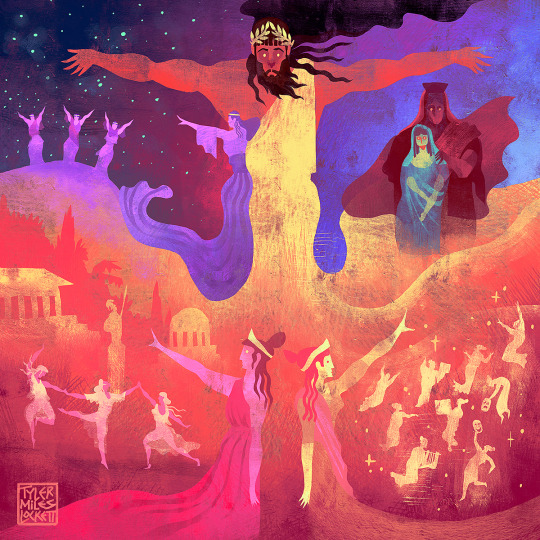
Protogenoi 8: Zeus’ Deity Daughters
With the six Olympian gods now in control of the earth, seas, and sky, Zeus and his wives and consorts produce many offspring with different powers and functions. On the following page we’ll examine the young Olympian offspring. But first, let’s look at Zeus powerful offspring deities.
Zeus and Themis, 1st wife and goddess of justice and law. Together they bear the Horai, three goddesses of seasons and natural order. Eunomia (good order and societal governance), Dike (justice), and Eriene (peace and prosperity). They also function as the guardians of the golden gates of Olympus. Hesiod also names their offspring sisters here as the Morai (fates), which he previously, and curiously, listed as being daughters of Nyx.
Zeus and Eurynome, sea goddess, give birth to the three Charites (Graces) Aglaia (Brightness) Euphrosyne (joyfulness) and Thalia (flowering); goddesses of grace, beauty, festivity, dance, and song. They become attendants of the goddess Aphrodite, and one marries Hephaistos (Olympian smith and fire god) and another marries Hypnos, god of sleep.
Zeus and Demeter bear Persephone; goddess of spring, and after being abducted by Hades, she becomes queen of the underworld. To see more detail on these characters please view my Demeter Olympian entry.
Zeus and Mnemosyne, goddess of memory, birth the nine Muses, gold crowned goddesses of creative arts who provide inspiration to mortals. They are named Cleio (history), Euterpe (lyric poetry), Thalia (comedy), Melpomene (tragedy), Terpsichore (choral song and dance), Erato (erotic poetry) , Polyhymnia (religious hymns) , Urania (astronomy) , and the leader, Calliope (Epic poetry). In my previous illustration for Hesiod, I portrayed the nine muses bestowing the poet a laurel staff; a symbol of poetic authority.
Thanks for looking and reading! To see more of my work: https://linktr.ee/tylermileslockett
#pagan#hellenism#greek mythology#tagamemnon#mythology tag#percyjackson#dark academia#greek#greekmyths#classical literature#percy jackon and the olympians#pjo#homer#iliad#classics#mythologyart#art#artists on tumblr#odyssey#literature#ancientworld#ancienthistory#ancient civilizations#ancientgreece#olympians#greekgods#zeus#demeter#persephone
281 notes
·
View notes
Text
Character Intro: Mneme (Kingdom of Ichor)

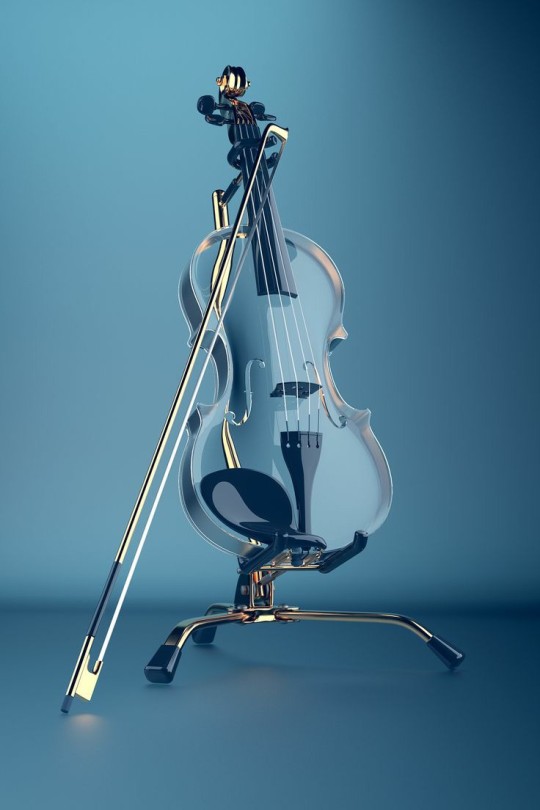
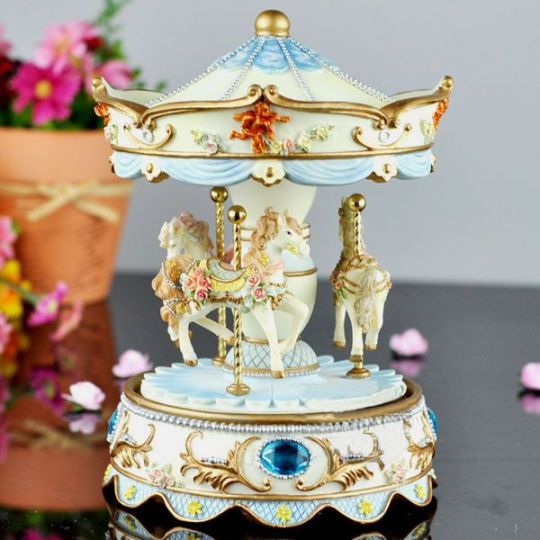



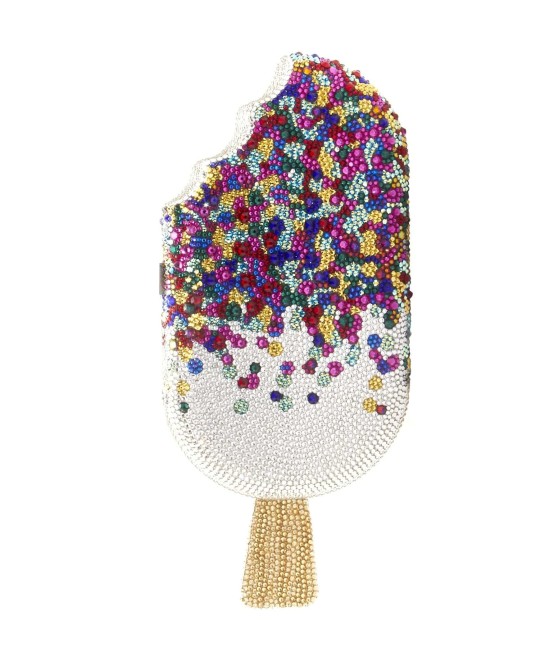
Nicknames- bambolotta by her mother
Age- 8 (immortal)
Location- Queenstown district, New Olympus
Personality- She's a sweet soft spoken young girl who has a great appreciation for the arts.
She has the standard abilities of a goddess except shapeshifting. As the goddess of remebrance her powers/abilities include audiokinesis (sings on perfect pitch), enhanced memory, & memetic muscle memory.
Mneme lives with her mom Lyrikós (Titaness of voice & song) and older sister Melete (goddess of thought & meditation) in a penthouse apartment in the Queenstown neighborhood of New Olympus.
Her bedroom has music note wallpaper, a bouncy bed covered in lots of pillows & stuffed animals, and pastel teal carpeting. On her bedside table there's an Imperial Gold music box. She also owns a collection of porcelian dolls as well as glamour dolls.
Mneme has a few small animals as pets including the latest addition- a baby pegasus named Cupcake.
A go-to drink for her is her mom's homemade hot chocolate. She also likes apple juice, limeade, sparkling water, ginger ale, berry mix juice, iced tea, and vanilla cola.
She likes when her mom makes ham & cheese calzones for breakfast along with scrambled eggs. She also likes the Earthly Harvest fruit crystals cereal.
Mneme can play the violin, acoustic guitar, lyre, and piano.
She's currently on break from school. Mneme attends the same esteemed private school in the city as her sister Melete. Her best friends are Physis (goddess of nature) and Aceso (goddess of healing). The three of them always sits together at lunch & hang out with a few schoolmates during recess. Mneme is aware of the other young deities around her age like Hebe (goddess of youth), Xenia (goddess of hospitality), Prophasis (goddess of excuses), Caerus (god of opportunity & luck), and Paidia (goddess of play & amusement). She's nice towards and greets Myrízei (god of smell & gases). Older godly kids in the school in the same grade as her sister include Calleis (goddess of allurement), Eulabeia (goddess of caution), Aidos (goddess of shame, modesty, humility, & respect), and Ersa (goddess of morning dew).
Mneme's favorite classes at school are music & literature.
Her favorite guilty pleasure are mozzarella sticks!
Some of her favorite snacks include assorted gummy bears, marshmallow & white chocolate cups, white cheddar cheese puffs, strawberry licorice twists, cloud cakes, and cinnamon applesauce.
In addition to taking ballet, Mneme is also taking classes to learn how to speak Latin and Minoan. Her tutor is Mnemosyne (Titaness of memory & language). She's also taking fencing lessons!
When school's back in session, she wants to try out for her grade's musical!
Mneme will have to wait till she's ten years old in order to get her ears pierced.
Aside from her mom and big sister, she also admires & looks up to Euterpe (muse of music & lyric poetry), Thalia (muse of comedy), Polyhymnia (muse of hymns), and Terpischore (muse of dance). Mneme also likes Acesco's mom Epione (goddess of soothing pain); and her vanilla yogurt pops! She also likes her sister's girlfriend Aurelia.
Mneme has been baby sat a few times by Morá (goddess of babies & children)- liking when she brings over the "Kid Kits."
Her favorite dessert are the crème brûlée cupcakes from Hollyhock's Bakery.
As a birthday gift her oldest sister Aoide (goddess of voice & song) gave her a popsicle shaped jeweled clutch from Diamond Ave. A few months later for Christmas Mneme got the roller skate clutch! Mnemosyne gifted her a jeweled magpie hair barrette to celebrate her excellent grades on her report card!
Her mom finally gave Mneme permission to invite her best friends over for a slumber party!
In her free time she enjoys listening to music, watching TV, going to the cinema (loves animated movies!), drawing, going to the opera, painting, figure skating, singing, bike riding, going to the park, jump rope, & hanging out with her friends and family.
Mneme's favorite meal is spaghetti bolognese with slices of garlic bread (topped with mozzarella cheese).
"Music is an awesome time machine!"
#my oc#my oc character#my character#oc character#oc intro#character intro#oc introduction#character introduction#modern greek gods#modern greek mythology#greek myth retellings#greek goddess#greek goddesses#greek mythology#greek pantheon#greek myths
4 notes
·
View notes
Text
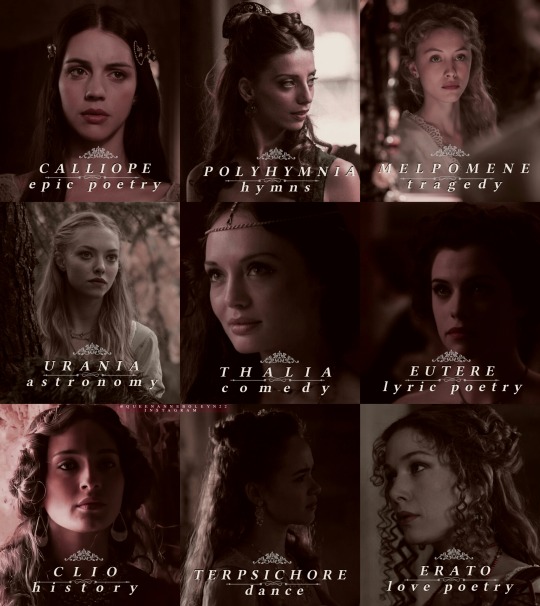
Like so many of the Greek divinities, however, the refined conception of the Muses is somewhat marred by the acerbity with which they punished any effort on the part of mortals to rival them in their divine powers. An instance of this is seen in the case of Thamyris, a Thracian bard, who presumed to invite them to a trial of skill in music. Having vanquished him, they not only afflicted him with blindness, but deprived him also of the power of song.
With regard to the origin of the Muses, it is said that they were created by Zeus in answer to a request on the part of the victorious deities, after the war with the Titans, that some special divinities should be called into existence, in order to commemorate in song the glorious deeds of the Olympian gods. Of all the Olympic deities, none occupy a more distinguished position than the Muses, the nine beautiful daughters of Zeus and Mnemosyne. In their original signification, they presided merely over music, song, and dance; but with the progress of civilization the arts and sciences claimed their special presiding divinities, and we see these graceful creations, in later times, sharing among them various functions, such as poetry, astronomy, etc.The Muses were honoured alike by mortals and immortals. In Olympus, where Apollo acted as their leader, no banquet or festivity was considered complete without their joy-inspiring presence, and on earth no socialgathering was celebrated without libations being poured out to them; nor was any task involving intellectual effort ever undertaken, without earnestly supplicating their assistance. They endowed their chosen favourites with knowledge, wisdom, and understanding; they bestowed upon the orator the gift of eloquence, inspired the poet with his noblest thoughts, and the musician with his sweetest harmonies.
With regard to the origin of the Muses, it is said that they were created by Zeus in answer to a request on the part of the victorious deities, after the war with the Titans, that some special divinities should be called into existence, in order to commemorate in song the glorious deeds of the Olympian gods.
-Calliope , the most honoured of the Muses, presided over heroic song and epic poetry, and is represented with a pencil in her hand, and a slate upon her knee.
-Clio , the muse of History, holds in her hand a roll of parchment, and wears a wreath of laurel.
-Melpomene , the muse of Tragedy, who bears a tragic mask.
-Thalia , the muse of Comedy, carries in her right hand a shepherd’s crook, and has a comic mask beside her.
-Polyhymnia , the muse of Sacred Hymns, is crowned with a wreath of laurel. She is always represented in a thoughtful attitude, and entirely enveloped in rich folds of drapery.
-Terpsichore , the muse of Dance and Roundelay, is represented in the act of playing on a seven-stringed lyre.
-Urania , the muse of Astronomy, stands erect, and bears in her left hand a celestial globe.
-Euterpe , the muse of Harmony, is represented bearing a musical instrument, usually a flute.
-Erato , the muse of Love and hymeneal songs, wears a wreath of laurel, and is striking the chords of a lyre.
#perioddramaedit#greek myth aesthetic#greek mythology#mythology#mythology edit#muses#calliope#clio#apollo#nine muses#greekmythologyedit#greek gods#erato#Melpomene#Thalia#Polyhymnia#Terpsichore#Urania#Euterpe#zeus#adelaide kane#laura haddock#sarah felberbaum#rose williams#maria valverde#jessica de gouw#amanda seyfried#sarah gadon
134 notes
·
View notes